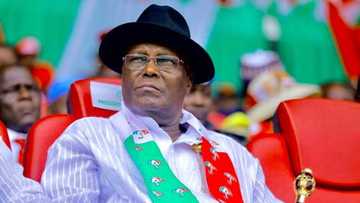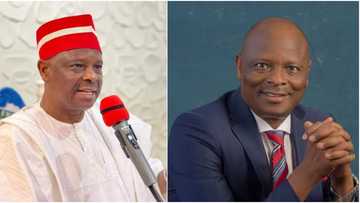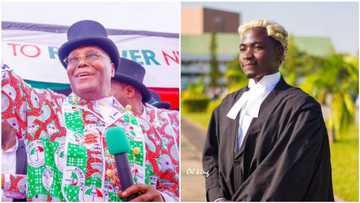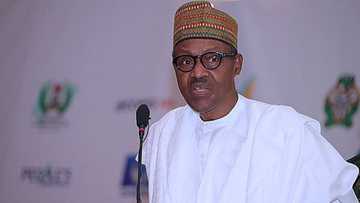2023 Elections: How Nigeria's Next President Will Emerge, According to Constitution
On Saturday, February 25, 2023, Nigerian electorates will troop out to elect a new president who will succeed the outgoing one; Muhammadu Buhari.
PAY ATTENTION: Сheck out news that is picked exactly for YOU ➡️ click on “Recommended for you” and enjoy!
Since 1999 when Nigeria returned to democracy, the 2023 election will be the seventh presidential poll.
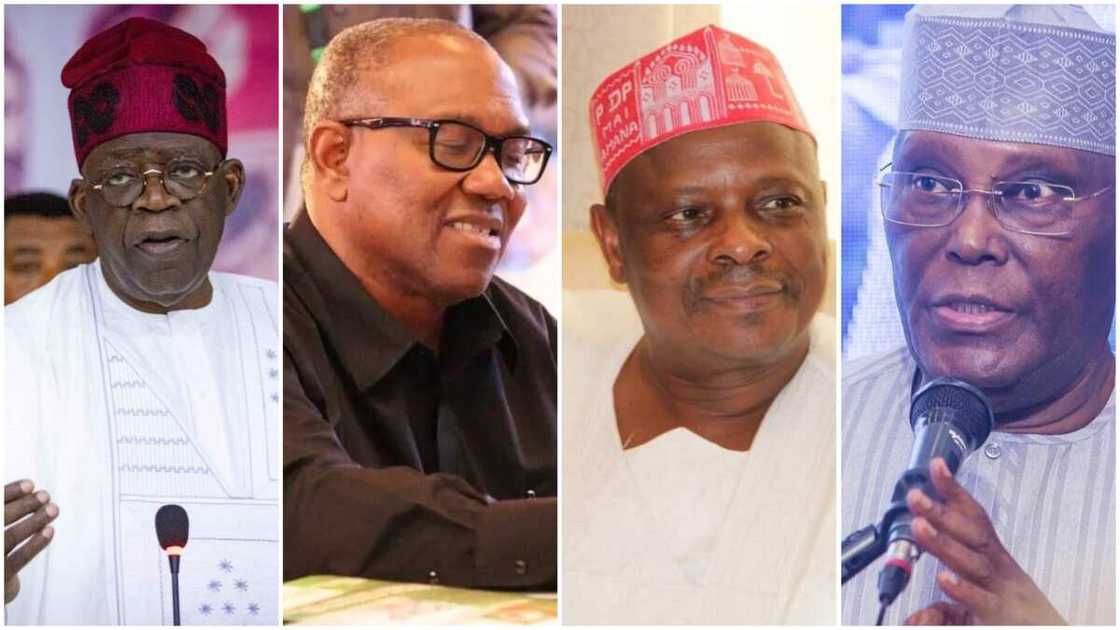
Source: Facebook
The next president to be elected will be the fifth; from Olusegun Obasanjo in 1999 to Umaru Musa Yar’Adua, Goodluck Jonathan, and Muhammadu Buhari in 2019.
Nigeria’s 2023 presidential election: Top four contenders
In 2023, 18 political parties and presidential candidates are participating in the poll. However, four candidates stand out among the rest. They are:
PAY ATTENTION: Сheck out news that is picked exactly for YOU ➡️ find the “Recommended for you” block on the home page and enjoy!

Read also
BREAKING: Labour Party’s logo missing on Ondo ballot papers, LP calls for postponement of 2023 polls
- Asiwaju Bola Ahmed Tinubu, All Progressives Congress (APC)
- Alhaji Atiku Abubakar, Peoples Democratic Party (PDP)
- Peter Obi (Labour Party)
- Rabiu Musa Kwankwaso, New Nigeria Peoples Party (NNPP)
Ahead of the election, this is how winners are determined in Nigeria's presidential polls.
Nigeria’s presidency: 4 criteria to be met before contesting
First, before a person can contest the presidential election in Nigeria, Section 131 of the 1999 Constitution lists four key requirements that must be met.
A person shall be qualified for election to the office of the President if:
- he is a citizen of Nigeria by birth;
- he has attained the age of 35 years;
- he is a member of a political party and is sponsored by that political party; and
- he has been educated up to at least School Certificate level or its equivalent.
Nigeria’s presidency: Criteria to be met to be declared the winner

Read also
Tension hits Obi, Atiku's camp as top presidential candidate dumps ambition asks supporters to vote Tinubu
To be declared a winner, Sections 133 and 134 of the Constitution list the requirements that must be met.
The Constitution spells out the criteria to be declared a winner if there is only one presidential candidate or there are more than two.
Section 133: Single Presidential Candidate
If there is only one presidential candidate nominated for the election, he or she has to meet the criteria below before emerging as the winner:
- he has a majority of YES votes over NO votes cast at the election; and
- he has not less than one-quarter of the votes cast at the election in each of at least two-thirds of all the States in the Federation and the Federal Capital Territory, Abuja.
However, if the only candidate fails to be elected in accordance with the criteria listed in the section, there will be fresh nominations.
Section 134: Two or more Presidential candidates
This section is the one that applies to the 2023 presidential election where 18 candidates are jostling for the seat.
If there are only two candidates, a duly elected flagbearer must meet the two criteria below:
- he has the majority of votes cast at the election; and
- he has not less than one-quarter of the votes cast at the election in each of at least two-thirds of all the States in the Federation and the Federal Capital Territory, Abuja.
If there are more than two candidates, as with the case with the 2023 elections where there are 18 contenders, a candidate must meet the criteria to be duly elected:
- he has the highest number of votes cast at the election; and
- he has not less than one-quarter of the votes cast at the election each of at least two-thirds of all the States in the Federation and the Federal Capital Territory, Abuja.
Second election: Run-off
Ahead of the 2023 elections, some have predicted that a winner may not emerge in the first ballot. The constitution also has a provision for this.
Subsection 4 states that if no candidate is duly elected in line with the criteria listed above, there shall be a second election to be contested by:
- The candidate who scored the highest number of votes in the first election, and
- One among the remaining candidates who has a majority of votes in the highest number of states.
However, where there are more than one candidate with the majority of votes in the highest number of states, the candidate among them with the highest total of votes cast at the election shall be the second candidate for the (run-off) election.
How a winner emerges from the run-off
According to the Constitution, the Independent National Electoral Commission (INEC) shall, within 21 days of the result of the first election, arrange for the (run-off) election between the two candidates.
A candidate at the (run-off) election shall be deemed to have been duly elected to the office of President if:
- he has a majority of votes cast at the election; and
- he has not less than one-quarter of the votes cast at the election in each of at least two-thirds of all the states in the Federation and the Federal Capital Territory, Abuja.
The third election: How a winner emerges
If a winner still fails to emerge based on the above-listed criteria, INEC will within 21 days of the result of the (second) election arrange for another election between the two candidates.
A candidate at such (third) election shall be deemed to have been duly elected to the office of President if he has a majority of the votes cast at the election.
INEC releases final list of candidates for presidential, senatorial and House of Reps elections
Earlier, Legit.ng reported that INEC on Tuesday evening, September 20, published the final list of candidates for Presidential, Senatorial and House of Representatives for the 2023 general elections.
In a statement, the commission said it approved the final list of candidates “pursuant to section 32(1) of the Electoral Act 2022 and item 8 of the timetable and schedule of activities for the 2023 general election”.
According to INEC, there are 18 presidential candidates for the 2023 general elections. For the National Assembly elections, 1,101 candidates are vying for 109 Senatorial seats and 3,122 candidates for House of Representatives seats.
Source: Legit.ng


